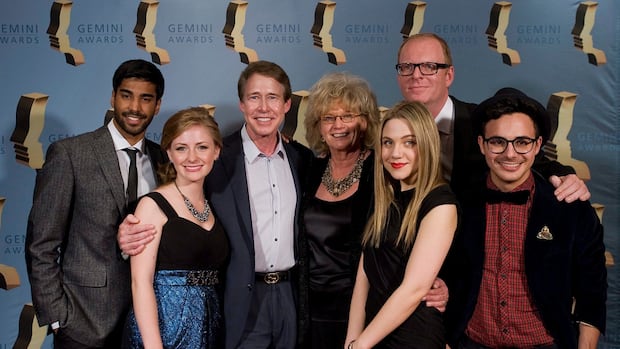The Life of Chuck is a film told in reverse.
This is not an especially novel conceit — we are most of us years past the days of sitting in friends’ basements, staring in slack jawed, smoke-clouded awe at the end of Memento.
But neither are the various other conceits of this latest Stephen King adaptation (unbelievably, just the second of at least five more King adaptations scheduled for the next year) when compared with the horror workhorse’s canon.
And while it may be something of a spoiler to explain just how this film’s three acts (starting — predictably — with the third) tell the tale of our eponymous lead, unfortunately it’s necessary. Because if you did not know this was a metaphor-driven story about mild-mannered Chuck’s tragically short life told in reverse — and not always featuring him — this already convoluted narrative would be just about impossible to discuss.
But reliable as ever for King, the real point of this journey is how we get there — as always, in those reliably predictable conceits of his writing. There is the typical onerous schmaltz: right from the first “act,” following burned-out teacher Marty Anderson (Chiwetel Ejiofor) searching for his ex-wife Felicia Gordon (Karen Gillan) in what very much seems like the final days of a modern apocalypse.
It is a sort of mini love story, yes. But it is also a vehicle for King — and by extension, our director and now serial King-adaptor Mike Flanagan — to cram in their maybe just-too-sweet fairy tale clichés.
WATCH | The Life of Chuck trailer:
The way Chuck dishes out those clichés is an exercise in scattershot sentimentality. For example, did you know that Carl Sagan’s “cosmic calendar” — which relatively shrinks the history of the universe into one calendar year — is a great metaphor for our own fleeting mortality?
Did you know that waxing philosophical about exactly how long it takes the Earth to make a full rotation (hint, it’s not 24 hours) can be spun into a cute, cinematic parable? Just have it explained by a bespoke, elderly mortician with the adorably, tragically doomed lifelong dream of becoming a weatherman.
And hey, did you know we could turn this whole thing into what basically amounts to an Aesop’s fable? Just stick a surreal ad campaign above all the carnage — inexplicably congratulating some stranger named Chuck on his retirement after “39 great years” — and let your characters remark on how absurd it all is.
Pair it with end-of-the-world imagery eerily similar to today’s headlines, and just try and keep from interpreting everything as a metaphor. I dare you.
Disney-fied childhood
At the same time, we have the trite King-isms: the lyrical, sing-songily hokey lines that read as if yanked right from an episode of Leave It to Beaver. For example: the little rollerblading girl Marty encounters, cheerfully exclaiming that “Ms. Gordon gives us gingersnap cookies sometimes!” as if kids still pull their vocab from Bazooka Joe bubblegum instead of Big Justice and The Rizzler.
Or there are the Disney-fied phrases that simply scream of being airlifted from from the novella it was based on. As we move backwards into our second act, our narrator introduces us to the Chuck in question: a man so aggressively bland, so ironically unaware of his own stellar uniqueness he’s “dressed in the armour of accountancy: grey suit, white shirt, blue tie.”
In contrast, that quote seems to be so proud of itself neither the film’s advertisers nor its stars have been able to stop from regurgitating it at every possible moment.
But as we move on, back to our third (first) act, we encounter maybe the most reliable King calling card. The life of childhood Chuck (as he ages, played by Cody Flanagan, Benjamin Pajak and Jacob Tremblay) is awash in the twin themes of innocent boyhood, and an innocently nostalgic, gingham-wearing, non-door-locking America that may or may not have ever actually existed.

It’s a more-and-more omnipresent cinematic trend of writers lionizing both their legacies and cookie-cutter ’60s childhoods that read like The Fabelmans watched Stand By Me until their noses bled.
To be fair, beneath the set dressing is the message. Without getting too specific, it all boils down to Chuck’s own legacy, and the weepy It’s A Wonderful Life moral of a life well-lived.
We are the sum of all people we have ever met, The Life of Chuck cribs from equally saccharine adaptations. We contain multitudes, it literally quotes — and actually physically depicts — from Walt Whitman’s Leaves of Grass. If you save the cheerleader, Chuck borrows from the hallowed text of Heroes, you save the world.
Ok, maybe not exactly that last one. But what makes The Life of Chuck so infuriatingly, outrageously, quintessentially Stephen King is how this so closely follows the paint-by-numbers framing of all his non-horror outings.
As this movie grapples with the terrifying fear of impending, unavoidable death — and having every one of the experiences and memories we have of the world die along with us — we are told that whole pocket universes of our experiences exist within ourselves.
And with it, we get interesting questions to consider. How important are we in the grand scheme of things? How deep and valuable are all the ideas living in our heads? And is there any satisfying way to feel alright with them — and ourselves — all fading away?

Dancing to the end of the world
Given all the window dressing of the Stephen King expanded universe — and, as is almost a genre requirement of heartwarming cinema, a cathartic dance scene — the answer in Chuck is almost insultingly easily acquired.
And with a twist on the Quranic, Talmudic precept that saving one person is equal to saving the entire world (along with dash of both sci-fi and ghosts because hey, this is a King story after all) our reverse finale is all wrapped up in a nice, neat little bow by the end.
And there you have it: acceptance of death in under two hours. The wonderfully insipid recipe for a crowd-pleasing, more-than-likely best picture nominee (especially given its 2024 People’s Choice award at the Toronto International Film Festival). A film grounded in a somewhat interesting philosophical, metaphysical premise, but suffused with bloated, misty-eyed celebrations of absurdism mixed with Maine mid-century cosplays.
In essence, the Green Book of terminal cancer.
Or at least, that is The Life of Chuck after a first viewing. It is perhaps a bad-faith criticism of an intentionally broad, serviceably soothing story that doesn’t do anything terribly wrong.
And in fact, maybe the message is just delicate and hopeful enough to work. Maybe especially so during an era so bleak that everything nowadays — from Pixar’s Elio to Marvel’s Thunderbolts* to, yes, The Life of Chuck — is being marketed as a balm for living in a society that seems to be coming apart at the seams.
Whether that’s a worthwhile and healthy way to deal with watching Northern Ireland, Los Angeles, Gaza, Ukraine and seemingly half the world burn — as Hiddleston suggested in a Vanity Fair interview — is a harder question. And whether Chuck‘s self-sacrificing acceptance of mortality so easily earned would be heartening, or ring the most cruel and hollow for those actually facing the end of everything is a question I’m not equipped to answer.
But to those of us for whom death is (hopefully) still an indistinct, blurry thing in the distance, this little morality play at least feels reassuring. As long as you squint hard enough, and leave your questions at the door.






